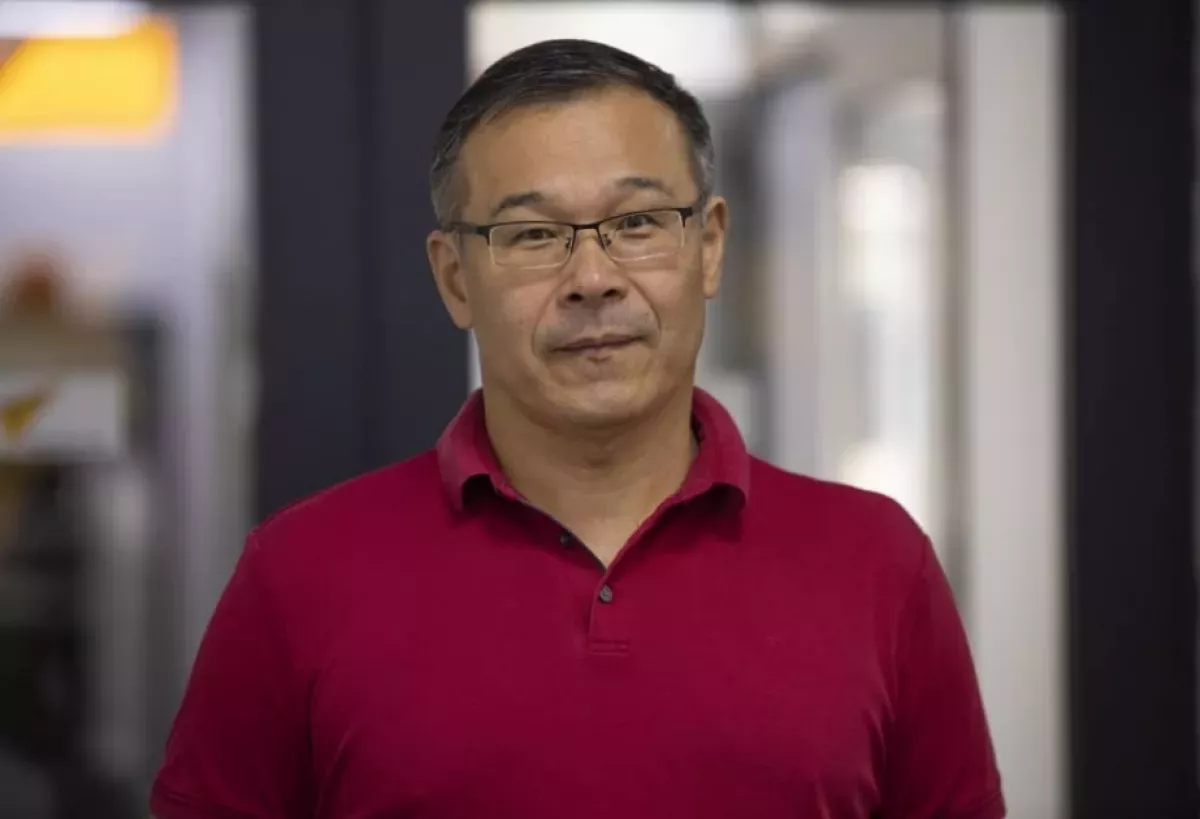"Azerbaijan is a pivot state for China's geopolitical interests" Expert opinions on Caliber.Az
At the invitation of Chinese President Xi Jinping, Azerbaijani President Ilham Aliyev is paying a state visit to China from April 22 to 24. Ahead of this visit, Chinese Foreign Ministry spokesperson Guo Jiakun stated at a press conference that China and Azerbaijan are strategic partners. He noted that political mutual trust between the two sides continues to strengthen, cooperation within the framework of the Belt and Road Initiative has yielded fruitful results, and international collaboration has been effective.
As part of the state visit, a number of documents were signed between the Azerbaijani Ministry of Energy and Chinese companies. Among the signed documents are: the Investment Agreement between the Government of Azerbaijan and Universal Solar Azerbaijan LLC on the Gobustan Solar Power Plant Project with a capacity of 100 MW; the Implementation Agreement between the Ministry of Energy of Azerbaijan and China Energy Overseas Investment Co. Ltd. on the assessment, development, and implementation of an offshore wind energy project; the Implementation Agreement between the Ministry of Energy of Azerbaijan, China Datang Overseas Investment Co. Ltd, and SOCAR Green LLC on the assessment, development, and implementation of a floating solar power plant project with a capacity of 100 MW and a 30 MW battery energy storage system on Lake Boyukshor; the Implementation Agreement between the Ministry of Energy of Azerbaijan, PowerChina Resources Limited, and SOCAR Green LLC on the assessment, development, and implementation of a 160 MW solar power plant project; the Memorandum of Understanding between the Ministry of Energy of Azerbaijan and the Electric Power Planning and Engineering Institute of the People's Republic of China on the development of renewable energy and power system planning; and the Memorandum of Understanding between the Ministry of Energy of Azerbaijan, SOCAR Green LLC, China Datang Overseas Investment Co. Ltd, and PowerChina Resources Limited on the development of a 2 GW offshore wind energy project in the Azerbaijani sector of the Caspian Sea.
As we can see, the plans are ambitious.
Prominent foreign experts have shared their views on the future of Azerbaijan–China relations with Caliber.Az.

Sheradil Baktygulov, Director of the Institute for World Politics Study (Bishkek), first explained that Azerbaijan is of interest not only to China, but also to countries such as the United States, Russia, France, the European Union, Pakistan, Iran, and Israel — not to mention Türkiye and other Turkic and non-Turkic states.
"Each of these countries, however, has its own distinct interests, which may conflict with the interests of other states, and at times even with those of Azerbaijan itself. That is why diplomats, military officials, and politicians exist in the world.
The heightened interest in Azerbaijan is driven by its unique geographic location, its wealth of natural resources, and its reputation as a reliable partner on the global economic stage. In addition, Azerbaijan is actively developing international transport corridors, creating modern infrastructure and investing additional resources to expand their capacity due to a sharp increase in cargo flow through its territory.
Here, it is perhaps appropriate to ask: how does China’s interest differ from that of other countries? One of the answers is quite obvious. Major transport projects such as the Baku-Tbilisi-Kars railway, the North-South International Transport Corridor, the Trans-Caspian International Transport Route (Middle Corridor), and the Baku International Sea Trade Port — one of the largest ports on the Caspian Sea, by the way — are opening up new opportunities for implementing various projects under the Belt and Road Initiative. This initiative is already bearing fruit. For example, Chinese businesses have invested in the construction of oil and gas pipelines from the Caspian Sea to Türkiye, and in the expansion of the aluminium plant in Ganja. In total, around 300 business enterprises in Azerbaijan operate with Chinese capital," the expert said.
Thus, he says, there are three key components that underpin the successful cooperation between the two countries.
“First is the presence of political will at the highest level, as reflected in the signed documents—for example, the agreement on establishing a strategic partnership between Azerbaijan and China.
Second is the creation of institutional frameworks for cooperation. This includes the Belt and Road Initiative, as well as bilateral agreements and cooperation plans across various sectors of the economy and human activity.
And perhaps most importantly, the third component is the practical implementation of the agreements reached. In other words, the real execution of the envisioned cooperation scenarios. The importance of this third element can be illustrated by a well-known Chinese saying about international cooperation: ‘politics is warm, but the economy is cold.’ In the case of Azerbaijan and China, however, we can say that things are heating up in both politics and the economy.
Azerbaijan was one of the first countries to support the Belt and Road Initiative. The beginning of cooperation within this initiative marks a shift in Azerbaijan-China relations — from a phase of political and diplomatic interaction to one of joint development. As they say, ‘those are two very different things.’ At this stage, some ‘rough edges’ may emerge in the interaction process between the two countries’ business communities and executive bodies. What will be required here is a commitment to objective and fair assessment of project documentation — from business plans to the expansion of port infrastructure.
Another significant development in Baku-Beijing relations occurred on July 3, 2024. On the sidelines of the Shanghai Cooperation Organisation Summit in Astana, the leaders of Azerbaijan and China signed a document titled “Joint Declaration on the Establishment of a Strategic Partnership between the Republic of Azerbaijan and the People’s Republic of China.”
In Chinese diplomatic practice, particular emphasis is placed on the system of strategic partnerships. The establishment of such a partnership is a clear sign of mutual trust between the two nations.

Often, the concept of strategic partnership is misunderstood as ‘now anything is possible’ — but that is a misconception. Why has strategic partnership proven to be an effective tool for developing China’s foreign relations with other countries? Because such a partnership follows the principles of cooperative diplomacy rather than alliance-based diplomacy.
In a typical alliance, the stronger party may fear being dragged into a conflict by the weaker one, while the weaker party worries about being abandoned in times of crisis. A strategic partnership, on the other hand, built on mutually beneficial cooperation, eliminates these concerns by reducing binding obligations for both sides. Instead, both parties agree to collaborate in areas of mutual interest. By focusing on shared goals rather than perceived threats, partners aim to strengthen their relations and seek ways to improve cooperation in other areas as well.
This is why it is important for the Azerbaijani side to formulate and advance its own projects — and it should be noted that Azerbaijan is doing this quite successfully. Azerbaijani trade and wine houses are already operating in seven major Chinese cities: Beijing, Shanghai, Urumqi, Qingdao, Chengdu, Nanjing, and Zhangjiajie.
As President Ilham Aliyev noted in his interview on April 21 of this year, the trade turnover between Azerbaijan and China in 2024 increased by 20.7% compared to the previous year, reaching $3.744 billion. China has become Azerbaijan's fourth-largest trading partner, accounting for 7.9% of the country's foreign trade turnover and leading in imports with 17.69%.
Therefore, Azerbaijani diplomats and businesspeople face a significant task — to develop, promote, and implement projects that reflect Azerbaijan’s interests in its sustainable development. This development is an integral part of the sustainable growth of the South Caucasus and neighbouring regions, particularly Central Asia. It is also worth reminding that, despite the geopolitical and geo-economic storms raging across the globe, China remains an attractive mega-market. Hence, the joke still holds: ‘If every person in China gives me a dollar, I’ll become a billionaire,’” Baktygulov recalled.

As stated by a sinologist, Doctor of Military and Political Sciences, and Professor Vakhtang Maisaya (Tbilisi), President Ilham Aliyev’s visit to Beijing and the development of Azerbaijan–China relations is a very important moment.
"And naturally, this is linked to the fact that China is effectively implementing a new foreign policy concept, which can be calleda strategic partnership with pivot states. There is a term in international politics — pivot states — which are the main strategic pillars for the development of foreign policy and geopolitical goals for the country pursuing this pivot foreign policy strategy.
I believe that not only Azerbaijan but also Georgia are such pivot states for the People’s Republic of China. This is related to the development of a new phase, the creation of a new geo-economic coalition between four states — Türkiye, Georgia, Azerbaijan, and Kazakhstan — and the development of the Middle Corridor," the expert explained.
Already, the trade turnover between Azerbaijan and China has exceeded $3 billion, which speaks volumes, according to him.
"China is interested in developing energy projects, trans-communication and transit corridors, and primarily in exploring Caspian resources.
I believe that China could become one of the balancing forces in the Caspian and South Caucasus regions, or, as I would call it, the Caucasus-Caspian region, and somehow balance the aggressive ambitions of the Russian Federation, as demonstrated by the Kremlin in the case of Georgia, with its creeping occupation.
In fact, after China proposed to the European Union to become a strategic partner and create a new union, many shared interests emerged at the bilateral level between China and Azerbaijan.
I believe these relations are set for development. It is absolutely clear that China considers Azerbaijan a strategic partner, a strategic friend, you could say. In a conceptual context, Azerbaijan has become a pivot state for China's geopolitical interests," concluded Maisaya.








